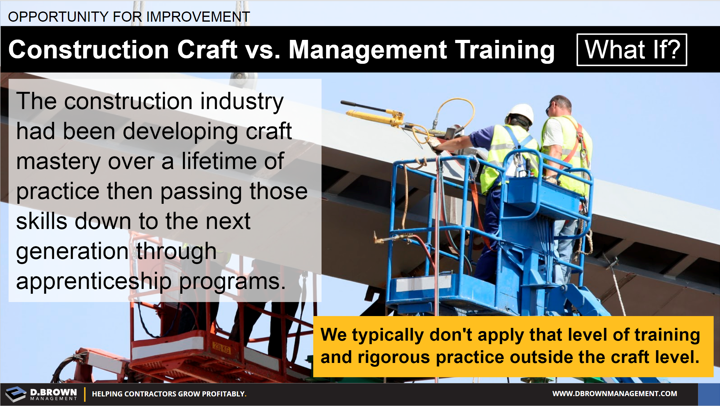Project delivery methods are rapidly evolving while project complexity is increasing and schedules are tightening demanding more from management.
We can learn a lot of lessons from how we develop craft labor versus how we develop a Superintendent or Project Manager or any other manager.
- The skills for a craft including the tools required are broken down into detailed lists that can be used as both a training and an evaluation guide.
- Crafts people spend about 4 weeks per year for up to 5 years in classrooms and labs during their apprenticeship.
- Apprentices are intentionally moved around to various projects working with someone experienced ensuring they get the on-the-job training across all skills.
- Experienced crafts people know that part of their job is to train apprentices; it’s in the culture.
A solid crafts person is exceptionally valuable but it is the Project Manager and Field Supervisor who organizes them to be truly effective.
How intentional are you about the development of your managers?
How much would it be worth to improve their effectiveness by 10%?

